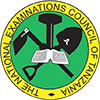REGIONAL ADMINISTRATION & LOCAL GOVERNMENT - PMORALG
THE UNITED REPUBLIC OF TANZANIA PRIME MINISTER'S OFFICE
BASIC EDUCATION STATISTICS(BEST)
Availability
of relevant and timely data is necessary in enabling policy makers,
education managers, planners, researchers and other data users to
perform their functions properly and provide appropriate services to the
customers.
Following the implementation of
Decentralization by Devolution policy (D by D), the Prime Minister’s
Office, Regional Administration and Local Government (PMO-RALG) is now
responsible for the management and administration of pre- primary,
primary and secondary education in Tanzania. This involves not just the
administration of the schools but also to plan for their development, to
monitor and evaluate their performance and to ensure that they are
properly supplied with appropriate facilities for the purpose of
achieving provision of quality education for all. For this reason,
PMO-RALG must have easy access to education management information
especially education information and data that provide key indicators on
the size and progress of the basic education sub-sector.
To
achieve the intention of ensuring that basic education information and
data is made available PMO-RALG has, effective from 2013, embarked on
annual production of National level Basic Education Statistics booklet. A
second booklet containing data at Regional level is also being
produced. The purpose of this latter booklet is to provide education
data in relatively greater details disaggregated at regional level and
over a wide span of ten years. This will allow comparison and analysis
of needs and performance at sub-national levels so that PMO-RALG can
take appropriate measures to address any education issues arising at
those sub-national levels.
The booklets have
information and data on students’ enrolment, teachers, education
facilities, examination results, school inspection and finance. The
information and data provided in these booklets will also provide key
information that will enhance the implementation of Big Results Now
(BRN) initiatives at primary and secondary education levels. For more
information download and read the following attachements.
- Pre- Primary, Primary and Secondary Education Statistics in Brief
- Pre- Primary, Primary and Secondary Education Statistics - Regional Data
- Pre- Primary, Primary and Secondary Education Statistics - National Data
